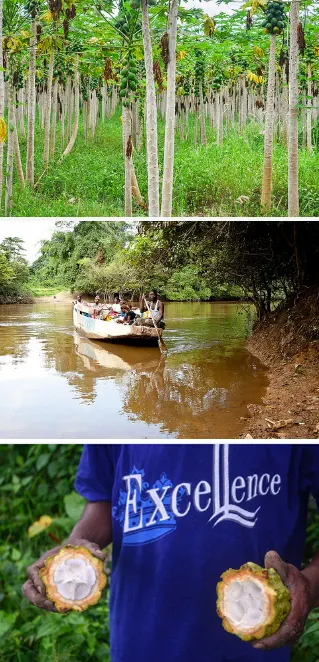What’s in a name?
Ivory Coast name changed in 1986 to Cote d'Ivoire.
Foreign overseas traders and exporters solely according to the business and trade economies roughly divided Africa into four coasts; Pepper Coast, Ivory Coast, Gold Coast and the Slave Coast.The French named the African country of Côte d'Ivoire which literally means Ivory Coast. Côte d'Ivoire was unofficially known as Costa do Marfim and côte des dents or the teeth coast; Ivory Coast reflects the trade in ivory.
The area that became the Ivory Coast on August 7, 1960, previously had been under French sovereignty. The state’s name changed from Ivory Coast to Cote D’Ivoire in 1986.
In 1986, the African government of Côte d'Ivoire declared the République de Côte d'Ivoire to be its formal name, and country must always be referred to by the French name.
Despite this request by the government, the African country of Côte d'Ivoire is still incorrectly referred to as Ivory Coast for over 30 years.
The Nationality of Côte d'Ivoire citizens is Ivoirian. Foreigners from West Africa, Europe (mainly France), and Lebanon composed about 25% of the population by 1998.
The latest estimates from 2012 place the foreign population of Côte d'Ivoire at nearly 22% and a median age of 20 years old.
For the nation known today as Côte d’Ivoire, this was a significant matter. In 1986, the Ivorian government officially asserted their identity on the global stage by declaring their country’s name to be Côte d’Ivoire in all languages, rejecting the colonial-era term Ivory Coast. This decision was not merely semantic it was a deliberate act of reclaiming their narrative from a time when their identity was reduced to trade.
Côte d'Ivoire is French for Ivory Coast however using the English word Ivory denotes the county is a commodity in the former slave trade instead of an African country with life and energy. By honoring the name Côte d’Ivoire, we acknowledge the nation’s history, culture, and independence, recognizing it as it defines itself, rather than as it was once labeled by others.What’s in a name? The power of a name and its value is immeasurable.
Together we build awareness that boost harmony, education, and success, below are more links to articles you will find thought provoking.
- Historical African Country Name
- Top 20 Largest Countries in Africa
- How many countries does Africa have?
- Roots of Africanized Christianity Spiritual Songs
- Chocolate Processing Facts History and Recipes
- Awesome Kenyan Woman
- Land is Not For Women in Sierra Leone
- African Kente Cloth Facts
- Accra the Ghanaian Capital Ultimate Mall Experience




























